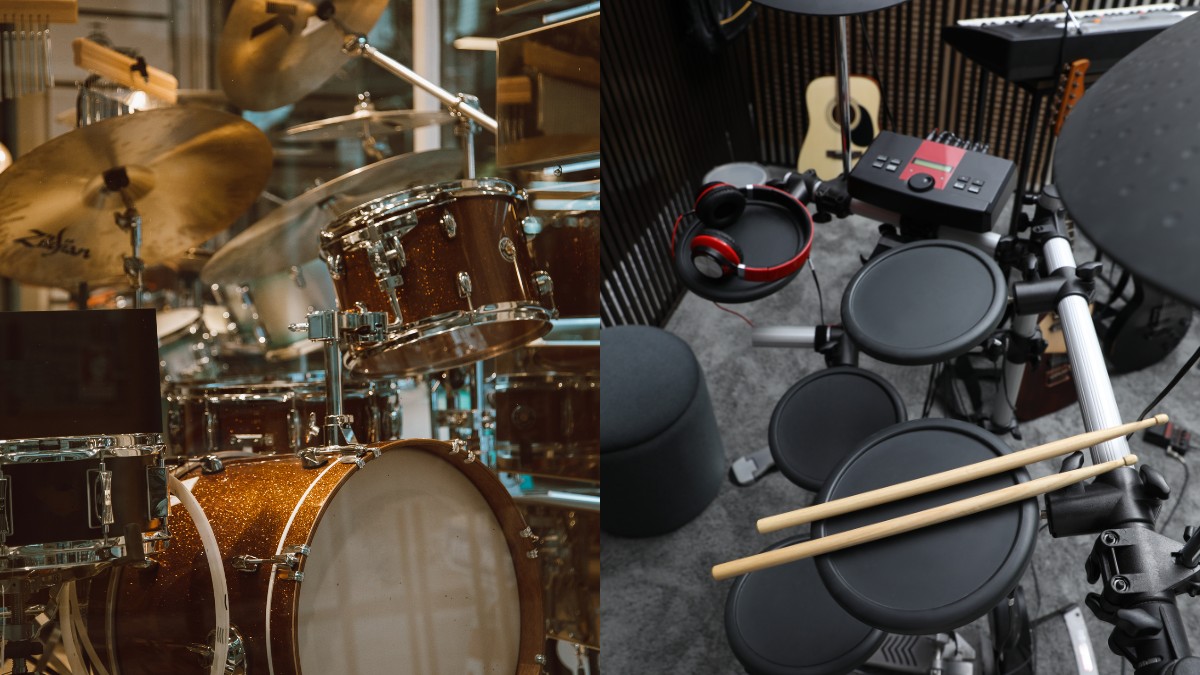5 Common Mistakes Beginner Drummers Make

This is a pretty frank outline of some big mistakes that beginner drummers make, and how you can avoid them. There are plenty of intermediates that make these mistakes too. This will help you focus on what matters to become a great drummer. Don’t let yourself fall victim to any of these 5 problems!
You should view this article as a list of potential areas of improvement. It is not intended to insult or hurt anyone, but sometimes people need a reality check to keep progressing!
There are no hard rules in music. It is an art. However, it’s best to get the essentials down first before deciding if you want to break the rules or not!
These mistakes are particularly important to keep in mind if you are planning to teach yourself drums, as you may not have someone looking over your shoulder to point out bad habits.
Contents
At a Glance
- Beginner drummers often lack proper dynamics and play every drum and cymbal with the same strength and intensity. Improving your dynamics means learning what each drum part’s role is and how to effectively maximize its presence.
- Practicing effectively is a crucial component that beginners should not overlook. Practice your technique, timing, and coordination, and learn new things and styles whenever possible to stretch your limits.
- Irregular and non-consistent practice is another big mistake. Make sure to create a practice routine and stick with it. If you’re not near your drum set or practice pad, just use your hands. No excuses.
- Timing and accuracy are pivotal. Practice with a metronome whenever possible, even on your practice pad. Utilize click tracks as well, everything that helps improve your sense of rhythm and timing.
- Going overboard, adding too many fills, and trying to outshine others will be your downfall. Drums are the heart of each song so play your role. Learn to stay in the pocket until your moment of truth comes.
1. You’re Not Playing With Proper Dynamics
An easy way to recognize a novice drummer is by their lack of dynamics. They play every drum and cymbal with the same strength, which can leave the most important parts of the beat hidden in the mix. For example, when playing on the ride cymbal, you need to develop coordination to be able to strike that at a different volume than a hard-hitting snare.
Check out this great video by Randy Cooke that explains some simple ways to make your grooves sound a whole lot better.
A drummer should also be really in control of how soft and loud to play their entire beats throughout the track. Decreasing the volume of your beat should lower the volume of every drum/cymbal in proportion.
2. You’re Not Practicing Effectively
Many drummers spend quite a lot of time practicing but don’t put enough thought into WHAT they are working on. PLAN out what you want to develop over the next few weeks/months and try to stick to it. If you get behind your drum kit and aimlessly play drum solos for hours it’s not going to do a lot for your drumming skills.
Don’t get me wrong, there is a time and a place for freestyle practice. It’s very fun and it’s great to help you get creative. However, you should always be looking to get BETTER at your craft. That means working on:
- Technique
- Timing
- Co-ordination
- Learning to play with material that stretches your skills
Many drummers tend to plateau into this ineffective practice after a few months or years of playing. That’s where either a local music teacher or even an online program such as Drumeo is a great way to keep you disciplined in improving your craft.
3. You’re Not Practicing Enough
Drummers need to put large amounts of time into their craft. People get the idea that drumming is an easy instrument to pick up. It’s very easy to play a simple drum beat, but playing it well is quite a different story.
For example, the video by Randy Cooke makes a basic drum beat sound killer in the video above!
You should dedicate a reasonable amount of time a week to practice. If you think you don’t have time, then just try to set aside 20 minutes per day. That can go a long way. Don’t make excuses for practicing. If you can’t play behind an acoustic kit use a practice pad, practice kit, electronic drum set, or even techniques to practice drumming without drums.
4. Your Timing is NOT Amazing
Statement: “Imperfect timing will make our song sound more raw and real”
Answer: “No it won’t. It will make it sound sloppy and unprofessional.”
Drummers need to have SUPER timing. If you can’t play comfortably to a metronome then stop reading this article right now and start working on your timing.
Practice some metronome exercises regularly. You don’t even need to be sitting behind your drum set to do it! Either use your practice pad or just clap along to the exercises.
Bands almost always record songs WITH a click track, and many styles of music require you to play to a click track on stage. If you’re not comfortable with this, you may be limiting your options as a drummer.
5. You’re Not Drumming Tastefully
It’s not all about killer chops! Drummers should look to complement the music as much as possible. Be a team player. If everybody in the band is separately trying to show off then the music will sound bad. The extent of flashy drumming that works for your music is largely dependent on the genre and style that you’re playing in.
For example, drumming takes quite a lead role in a lot of metal genres. That can give drummers more leeway to show off on their drums. That said, playing too many fills or going overboard may still make the track sound terrible.
Sometimes all it takes is a simple beat. For example, very busy drumming in recordings by the White Stripes or The Beatles may have destroyed the songs.
Drummers also often lock in quite heavily with the bass guitarist. The kick drum and the bass guitar usually occupy similar areas of the sound spectrum. If your kick drum and the bass guitar don’t complement each other then it might sound sloppy. You don’t necessarily need to follow the rhythm together, you just need to acknowledge that each of these instruments will play a part in the overall arrangement of the track and adjust your playing to suit.
Summary
I hope that served as a short list of essential areas to improve your drumming. Drumming is no different from almost any other skill. You need to get the essentials and foundations down before progressing to more advanced techniques. It’s very easy to get lost in the glory of big drum fills and solos, but you need to stay disciplined to keep working on your craft. Only then can you truly become a fantastic drummer.







